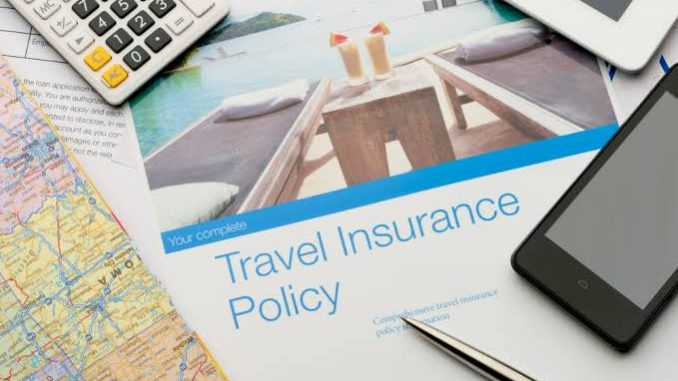
Get a Travel Insurance as traveling is one of the most enriching experiences in life. It exposes us to new cultures, places, and adventures, offering memories that last a lifetime. However, amidst the excitement, things can sometimes take unexpected turns—missed flights, lost luggage, medical emergencies, or natural disasters. That’s why many travelers opt to purchase travel insurance as a safety net to protect against unforeseen events. But what happens if your travel insurance claim is denied when you need it most?
Before you purchase any travel insurance, it’s essential to thoroughly understand what is covered and what is not. Insurance policies often contain specific terms and conditions, and misinterpreting them can lead to disappointment if your claim is denied. Let’s dive into the most common reasons travel insurance claims are denied and how to avoid them. Top 5 Investments Nigerians Should Consider for Long-Term Wealth
1. Failure to Disclose Pre-existing Medical Conditions
One of the most common reasons travel insurance claims are denied is due to unreported pre-existing medical conditions. A pre-existing condition refers to any illness or injury that you had prior to purchasing the insurance policy. Some insurance providers may offer coverage for these conditions, but this often comes with an additional premium or specific terms.
If you fail to disclose your condition, the insurer may deny your claim after reviewing your medical records. Always be upfront about your health status when purchasing travel insurance. It’s better to pay a bit more than to risk having a medical-related claim denied later on.
Tip: Read through the fine print of your travel insurance policy regarding pre-existing conditions. Some policies provide coverage if you declare the condition before purchase, while others exclude it entirely.
You might also like: Why you should consider voluntary pension contribution
2. Incomplete Forms and Missing Documentation
Administrative errors can cost you. Another frequent reason claims are denied is due to incomplete forms or missing documentation. If the paperwork is not filled out correctly, lacks necessary details, or is missing critical attachments, the claim process may halt.
For example, when claiming for lost or stolen items, you might need to provide receipts, a police report, or a written statement from the hotel or carrier. Missing one of these can lead to a rejection of your claim. Ensure that all required forms are completed accurately and that every supporting document is attached before submitting your claim.
Tip: Before filing your claim, double-check that all necessary documentation is in order. Keep copies of everything you submit for your own records, just in case.
3. Participation in High-risk Activities
Travel insurance policies typically have exclusions for certain high-risk activities or extreme sports. Activities like skydiving, parasailing, mountain climbing, or scuba diving may not be covered unless you have purchased an additional rider or premium.
Many policies cover routine travel-related activities but exclude high-adrenaline sports that could result in serious injury. If you’re planning to engage in adventurous activities, make sure your policy covers them.
Tip: Ask your insurer about the specific activities covered by your policy. If you’re planning to participate in extreme sports, purchase a policy that includes adventure sports coverage or add an optional rider to ensure you’re protected.
4. Traveling to Restricted or Non-approved Destinations
Certain destinations are considered high-risk due to ongoing conflict, natural disasters, or health risks. Insurers typically follow the recommendations of organizations like the World Health Organization (WHO) or the Foreign Office. If you travel to a destination against these warnings, your claim may be denied.
Tip: Check the travel advisory updates from official government and health organizations before you finalize your travel plans and purchase insurance. Make sure your destination is covered by your policy to avoid complications in the event of a claim.
5. Alcohol Intoxication or Drug Use
While it’s common for travelers to enjoy a drink or two while on vacation, any accidents or incidents that occur under the influence of drugs or alcohol may lead to a denial of your insurance claim. If you lose valuables, sustain an injury, or cause damage while intoxicated, the insurer is unlikely to cover those costs.
Tip: Enjoy your vacation responsibly. Always be mindful of your limits with alcohol, and avoid engaging in any risky activities under the influence to keep your travel insurance valid.
6. Engaging in Illegal or Reckless Behavior
No insurance policy will cover you if you are involved in illegal, reckless, or fraudulent activities. For instance, if you venture into restricted areas, engage in unauthorized use of premises, or violate local laws, your claim will be denied. Likewise, attempting to file a fraudulent claim is illegal and can lead to criminal charges.
Tip: Always familiarize yourself with local laws and regulations in the country you’re visiting. Be cautious and responsible in your actions, ensuring you don’t breach your policy terms or local laws.
7. Leaving Luggage or Personal Belongings Unattended
Travelers often misplace items or have valuables stolen, but if the loss occurs because you left your luggage unattended, your claim may be denied. Many travel insurance policies specify that unattended items (those left without supervision) are not covered unless they were stored in a secure place such as a locked hotel safe or car trunk.
Tip: Keep your belongings secure at all times. If an item is lost or stolen, file a police report immediately and obtain a statement from your hotel or tour operator, if applicable, to support your claim.
8. Events Occurring Before Purchasing Travel Insurance
One of the fundamental principles of insurance is that it covers unforeseen events. If an event occurs before you purchase the insurance—such as a natural disaster, political unrest, or a health emergency—it won’t be covered by the policy. Attempting to claim for a pre-existing event may be considered fraudulent.
Tip: Always purchase travel insurance as soon as you book your trip. This way, you’re covered in the event of sudden trip cancellations, medical emergencies, or other incidents that occur after the purchase.
Final Thoughts
Travel insurance is meant to offer peace of mind while you explore the world, but it’s important to know what your policy covers before you need to file a claim. Being proactive by understanding the terms, disclosing relevant information, and adhering to the rules will increase the likelihood that your claim is processed smoothly.
While we all hope our trips go off without a hitch, life is unpredictable, and sometimes things don’t go as planned. In those cases, having travel insurance and knowing how to navigate the claims process can make all the difference.

![Protect Your Investment with Auto Insurance in Nigeria [2024] 3 Auto Insurance in Nigeria](https://erise.com.ng/wp-content/uploads/2024/08/Auto-Insurance-in-Nigeria-326x245.png)


Be the first to comment